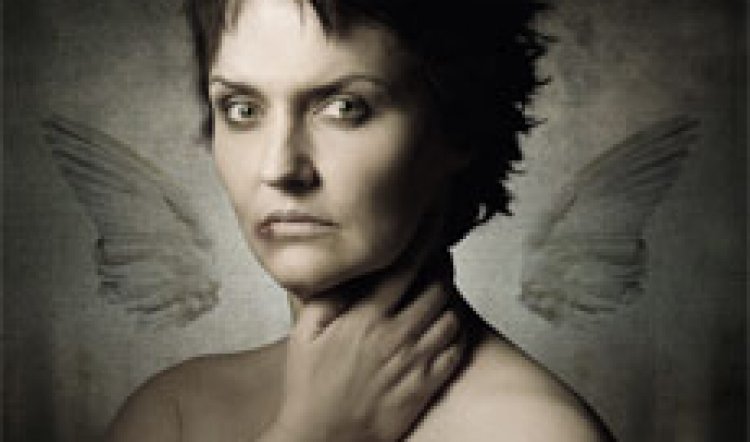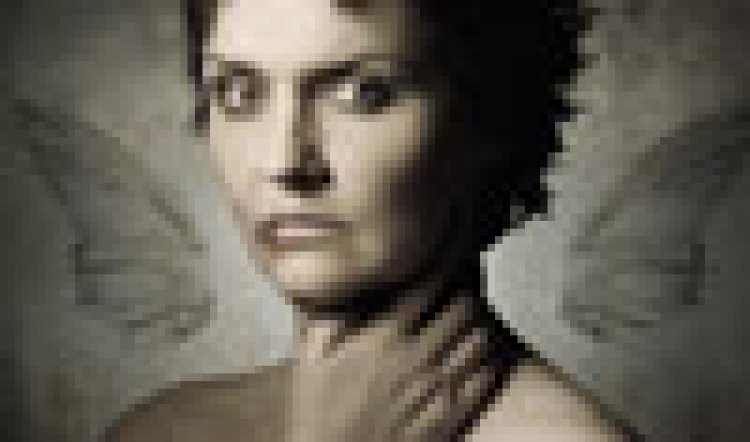
Perth Festival 2007 Diary pt 1
It's the end of week one at the Perth Festival, a week of highs and lows. Inexplicably, the city council chose this time to start major road works outside His Majesty's Theatre, one of the Festival's key venues. But it takes more than a traffic jam to stop Lindy Hume's momentum in her final year as Festival Director.
Opening night this year was more subdued and less emotional than last year's spectacular unveiling of the great Noongar canvas in Kings Park. But Noongar culture was still centre stage, with an impressively stirring festival overture, composed by Ian Grandage, sung by four hundred voices in indigenous language. The audience, seated on the grass in the Supreme Court Gardens, followed the piece on giant screens which also featured helpful surtitles. Gathering together such a large number of singers, drawn from local community singing groups, was an achievement in itself.
Their exuberance was more than matched by the pounding rhythms of Tetrafied, Perth's excellent homegrown percussion group, who deserve to be more widely known interstate; and by the accompanying visual presentation, BLINK, a series of projected images taken around regional WA. Next, the Australian Youth Orchestra took to the stage to play Prokofiev's Peter and the Wolf Suite as the soundtrack to a brilliant animation film version of the story in which the duck definitely stole the show.
Next up: the world premiere of The Love of the Nightingale, a new opera from Richard Mills. Undiminished by some scathing reviews for the Sydney production of Batavia and by a recent heart attack, Mills conducted the short season, with libretto by Timberlake Wertenbaker and directed by Lindy Hume, who somehow managed to take a month off her festival duties to rehearse this ambitious, complex and violent work and looked surprisingly relaxed on opening night. The result is something of a triumph, powerful, profound, poetic and utterly gripping, full of psychological insight, and providing a marvelous canvas for discussion of our humanity and lack of it.
While Emma Matthews stole everyone's heart as Philomele with her gorgeous final birdsong solo, bringing a redemptive and optimistic quality to an often very dark work, the strength of the piece lies in the consistently outstanding casting of every role. This was contemporary chamber opera at its best. I hope it travels far and wide, showcasing the talent behind it.
Less successful was another homegrown production, HOME, an ambitious theatre project devised by sometime actor and dramaturg Humphrey Bower and director Sophia Hall. The concept sounded appetising - a five course meal served in private homes for 20 guests, accompanied by dramatic storytelling. Except that's not really what we got. Sure, the food was delicious but we could have done with far less of it as the evening stretched on to four increasingly slow and long hours.
And there was something demeaning about having the actors double as waiters to pour our wine and clear our plates - don't they spend enough time doing that anyway and couldn't we at least for an evening, give them the dignity of their craft and help ourselves? More frustrating still was the absolute lack of dramatic shape or structure to the evening with too many similar characters on parade, all telling refugee stories from fairly similar angles.

This is the problem with theatre based on journalism and interview transcripts: it is not enough to simply render it verbatim, you have to massage the words into some kind of shape, give them tension, conflict, paradox, suspense, heightened emotion, some sense of what the stakes are. None of this happened. Instead, we found ourselves at the centre of a middle class dinner party at $140 per ticket, being guilt-tripped through a shameful episode in our country's history that we are already familiar with but gained no new insights into. All that effort wasted. After the first course I thought "surely at some stage they are going to draw a link between the act of breaking bread and our shared humanity?", but the food and the storytelling were never integrated, making the device of the dinner utterly redundant.
What the team from Home needed was to go and see Small Metal Objects. One of the big hits of the recent Sydney festival, it is theatre anchored in reality, closely observed but mediated through a fine dramatic sensibility that understood subtle shades of meaning and behaviour and had a really original take on the use of an public space to explore private needs, desires and feelings. Seeing it in Forrest Place in Perth's central shopping mall was riveting and full of poignant, unexpected, unpredictable moments: a group of Aborigines occupies the steps to the right of the audience's seating area, and they put on a parallel show that wove itself into the fabric of our experience in a way that was both disturbing and at times, comical.
Over at the art gallery, bumptious Bostonian director Alan Dodge, who has a reputation for standing in front of a picture and describing it as "really zingaroo" was in high spirits at the opening of the Festival exhibition, Raised by Wolves, an unorthodox exploration of the festival's theme for this year: the Human Family. The show is provocative, but patchy and uneven, though works by contemporary Aboriginal artists are among the strongest. Dodge has recently signed up for another five years at the helm, which seems a popular decision.
Highlights of the first week of free lunchtime talks (hosted by yours truly) included Neil Armfield talking candidly about the amount of fear and dread that is part of his creative process and explaining what motivated him to accept his Order of Australia from a government he is at odds with; Scott Rankin and Trevor Jamieson on the impact of the death of a member of their company on the forthcoming Aboriginal theatre piece Ngapartji Ngapartji, which opens next week and tackles the subject of Maralinga, and the loss of identity among the Spinifex people; and revered Taiwanese choreographer Lin Hwai Min demonstrating the way he has transformed the gestures of martial arts and tai chi into an exquisite physical language inspired by the brushstrokes of calligraphy, so that his dancers become both the brush and the ink in Wild Cursive which opens next week. There's a lot to look forward to, and I'll keep you posted.
Check out: www.perthfestival.com.au



